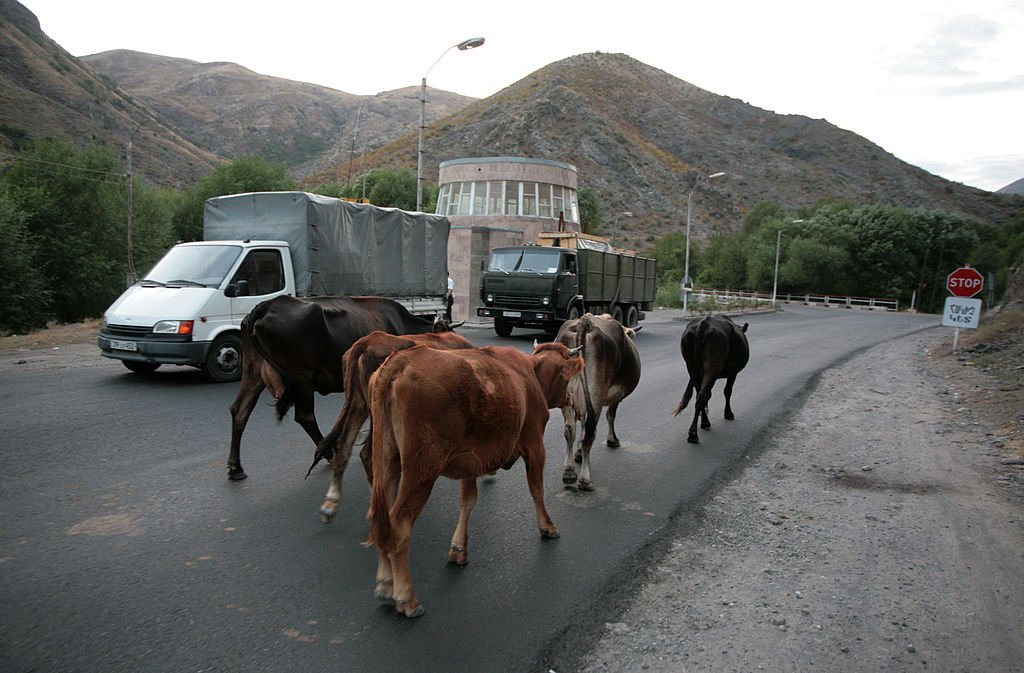
Freedom of Association
New law against terrorist financing introduces administrative burdens for civil society
On 31st January 2023, two laws affecting civil society organisations came into force in Azerbaijan. An analysis of these provisions was published by the International Centre for Non-for-Profit Law (ICNL). According to ICNL, the Law on Combating the Legalisation of Property Obtained through Crime and Terrorist Financing (AML/CFT Law) requires CSOs to develop internal procedures to minimise the risks of money laundering and terrorist financing when receiving and making grants and donations. They are also required to submit detailed financial reports on grants and donations to a supervisory authority and to conduct an annual assessment of their organisation's money laundering and terrorist financing risk. The deadline for submitting the reports is 1st April of each year. Under these new provisions, all registrations, certificates and permits issued to the offender will be cancelled or suspended if CSOs fail to comply in a timely manner.
The Law Amending the Code of Administrative Offences of the Republic of Azerbaijan (CAO Amendment Law) has also been updated to introduce financial penalties for organisations that violate these new provisions. Under these amendments, civil society organisations face fines of 1,000 to 20,000 manats (EUR 500 to 10,000) and their officials face fines of 2,000 to 4,000 manats (EUR 1,000 to 2,000) for non-compliance.
Freedom of Peaceful Assembly
Blockade of the Karabakh region by “environmental” protesters at 100 days
In March 2023, protests by Azerbaijani “environmental activists” against the exploitation of mineral resources in Nagorno-Karabakh reached 100 days. The protests began in December 2022 and include a blockade of the Lachin Corridor, the only road connecting Armenia to Nagorno-Karabakh. Although the protests are peaceful and without violence, they have been condemned by the international community as they have led to one of the worst humanitarian crises in the war-torn region. Despite the frequent repression of peaceful assembly under the Aliyev regime, these protests appear to be supported by the Azerbaijani government, raising fears that the “civil society” protest was planned by the authorities.
The demonstrators claim their actions are directed against Armenia’s illegal exploitation of mineral resources in the disputed area, in particular the Gizilbulag and Damirli gold and copper-molybdenum deposits in Karabakh. One of the demands of the protests is that Azerbaijani experts be allowed to supervise all mining operations. According to a January 2023 report by Open Democracy, the protesters, who appear to be made up of civil servants, disguised military personnel and members of pro-government organisations, are only allowing Russian peacekeepers and the International Committee of the Red Cross on the Lachin corridor.
This protest triggered a humanitarian crisis, as it blocked the only way to provide food and medicine to the Armenian residents remaining in the region, and also affected the region’s electricity and gas supply. The Azerbaijani side does not acknowledge the humanitarian consequences and tries to draw attention to the environmental damage caused by the exploitation. The Armenian side, on the other hand, points to the humanitarian crisis that denies ethnic Armenians access to medical aid and food.
Farmers' protest violently dispersed
Water shortages in a region in central Azerbaijan led to a protest by farmers in March 2023. For several years, the population in several districts has had limited access to water resources. Due to poor management and overuse, large amounts of salt have entered the rivers and made them unusable for irrigation by farmers. Although officials at the highest level had already acknowledged this, no steps were taken to minimise the impact.
On 13th March, about 200 people near the Kura and Aras rivers gathered to protest against the water shortage. Police in riot gear were dispatched to disperse the protest and used excessive force against the farmers, leaving several injured, including minors. According to footage shared on social media, rubber bullets and water cannons were used against the protesters. A representative of the Ministry of Interior stated that the police only took “special measures” against those who did not obey the order to disperse, emphasising that only non-lethal weapons were used. However, families of injured demonstrators claim that the police fired rubber bullets at the demonstrators from such a close distance that they could have had a lethal effect.
Freedom of Expression
New tax regulations threaten CSO activities
On 7th March, the deputies of the Azerbaijani parliament adopted amendments to the country’s Tax Code. Once they come into force, some of these regulations will affect the activities of civil society media organisations or independent content producers. According to the CSO Metre project, these regulations threaten CSO activities due to their vague language and high penalties of up to 10,000 manat (EUR 5,000) for non-compliance with the new amendments.
Experts believe that media practitioners will need support to comply with the regulations, as human resources are limited due to pressure from the authorities in recent years. Reporting will be most difficult for small publications or video bloggers, i.e. those who receive revenue from online advertising, as they lack the necessary experience in managing financial reports.
The new articles of the Tax Code also include incentives for media, providing for a three-year VAT exemption for media products from 1st January 2023. Material subsidies granted to media subjects by the competent state body will also be exempt for the same period. Another positive development are the newest updates to the Code of Administrative Offences, which introduced some provisions to protect press freedom, by imposing penalties on those who “illegally interfere in the professional activities of journalists,” restrict their right to receive information or fail to respond to their requests for information within the deadline specified by law.